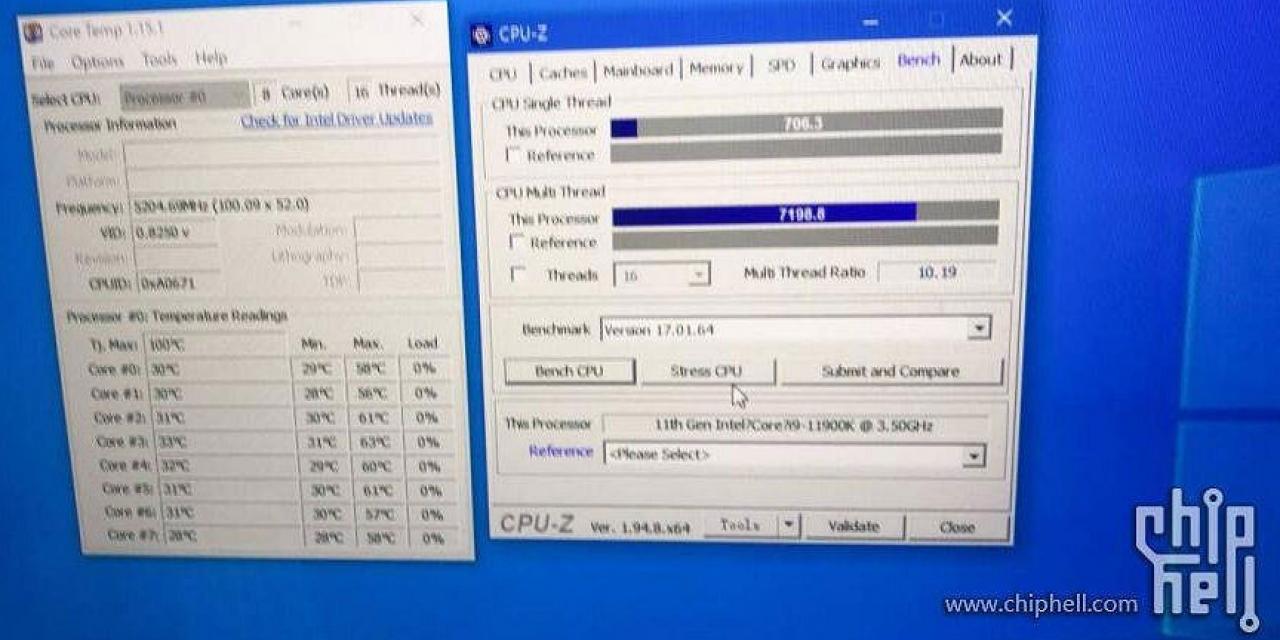
The next-generation Intel Rocket Lake CPUs, expected to debut this March, are set to use the first new Intel architecture that isn't Skylake-based in nearly a decade. This is huge news, but it has meant a reduction in core count and clock speed at the top-end. Fortunately, performance appears to rise significantly all the same, and that's especially so when you apply a big overclock to it. In one leaked test, we've seen the top-tier 11900K hit an impressive 5.2GHz, despite its efficiency improvements.
Spotted on the Chiphell forums by Videocardz, this result leads to a near 2 percent increase in single threaded performance, and a massive 10 percent boost to multi-threaded performance, potentially giving this chip the ability to beat even AMD's new flagship gaming CPUs, the 5800X and 5900X (though the latter's higher core count will likely still give it a big lead in productivity work).
Indeed, Videocardz has suggested that even without the overclock the 11900K should be a very competitive chip, offering single-threaded performance in excess of anything AMD has on offer. Its multi-threaded performance still falls noticeably behind, even if it does take a small leap over its predecessor 10900K by around 10 percent.
This is what real competition in the CPU space looks like. It's not the big die shrink that Intel has been promising for the better part of a half decade, but it is a new architecture and that's big. It's called Cypress Cove and is a backported 14nm version of the 10nm architecture in Intel's mobile Ice Lake CPUs. That's why it can't handle more than eight cores, there just isn't enough space on the die.
The question now, is whether AMD makes big price reductions to counter this and remain competitive across the CPU performance range.
Image source: Chiphell








